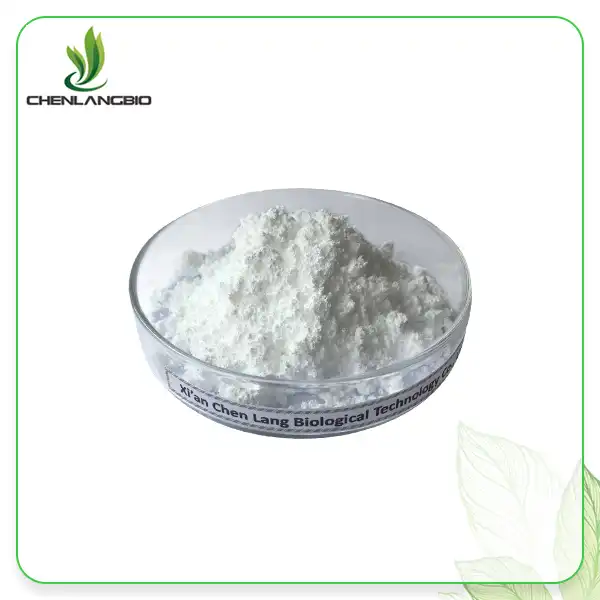Does Melatonin Help you Sleep
2024-02-21 11:35:52
What is melatonin?
Melatonin is a hormone secreted by the pineal gland in the brain and plays an important role in regulating the body's biological clock and sleep quality. This article will detail the role of melatonin, including how it regulates sleep, improves immunity, and affects the cardiovascular, nervous and digestive systems.
First, melatonin has a significant effect on regulating sleep quality. It can help the body shorten the time it takes to fall asleep and wake up before going to bed, reduce the chance of waking up at night, and deepen sleep. That's because melatonin helps regulate the body's biological clock, keeping sleep rhythms in line with nature's circadian rhythms.
Melatonin also has a regulatory effect on the function of the central nervous system. It can regulate the excitability of brain neurons, thereby helping to relieve anxiety, depression and other emotions, and improve the mental state.

Melatonin Benefits:
Sleep Regulation:
The primary function of melatonin is to help regulate sleep. It signals to the body that it's time to sleep and helps individuals fall asleep more easily. Melatonin supplements are commonly used to alleviate sleep disorders, such as insomnia and jet lag.
Jet Lag and Shift Work:
Melatonin supplements can help reset the body's internal clock when traveling across multiple time zones, reducing the symptoms of jet lag. They can also be beneficial for shift workers who need to adjust to changing work schedules.
Sleep Disorders:
Melatonin is used to treat various sleep disorders, including delayed sleep phase disorder (DSPD), non-24-hour sleep-wake disorder (common in blind individuals), and insomnia related to certain medical conditions.
Sleep Quality:
Melatonin may improve the overall quality of sleep by increasing the time spent in restorative deep sleep stages.
Antioxidant Properties:
Melatonin is a potent antioxidant, which means it can help neutralize harmful free radicals in the body. Some researchers believe that melatonin's antioxidant properties may contribute to its potential health benefits, such as protecting against oxidative stress and inflammation.
Immune System Support:
There is evidence to suggest that melatonin may have a role in enhancing immune function, which could potentially help the body defend against infections and diseases.
Anti-Inflammatory Effects:
Melatonin may have anti-inflammatory properties and has been studied for its potential to reduce inflammation in various medical conditions.
Mood and Well-Being:
Some studies have explored the effects of melatonin on mood disorders like depression and seasonal affective disorder (SAD). Although more research is needed, there is some evidence that melatonin may have a positive impact on mood and overall well-being.
Cancer Prevention:
There is ongoing research into melatonin's potential role in cancer prevention and treatment due to its antioxidant and immune-boosting properties.
Heart Health:
Some studies suggest that melatonin may have a protective effect on the cardiovascular system by improving blood vessel function and reducing blood pressure. However, more research is needed in this area.
Melatonin for kids:
Melatonin powder is for adults. It is not recommended for children to take melatonin.Because the child's liver and kidneys are not mature, it is not recommended to give children melatonin. Melatonin also has a child-preserving effect, it has an inhibitory effect on the child's gonad development and may cause the child to develop short stature. Male and female children may Slow development of reproductive organs may occur. Melatonin is not recommended for kids younger than 5 years old.
Are melatonin gummies safe for kids?
Melatonin gummies or chewable melatonin supplements are available for children, and they can be safe when used appropriately and under the guidance of a healthcare professional. However, there are some important considerations to keep in mind:
Consult a Pediatrician:
Before giving melatonin gummies or any melatonin supplements to a child, it's essential to consult with a pediatrician or healthcare provider. They can evaluate the child's specific sleep issues and determine if melatonin is an appropriate treatment option.
Age Considerations:
Melatonin supplements are generally not recommended for very young children, such as infants and toddlers, except under specific medical circumstances and with a doctor's guidance. Melatonin production in the body typically increases with age, so it may be more appropriate for older children and adolescents.
Dosage:
If melatonin is recommended, it's crucial to use the correct dosage. Pediatricians will typically prescribe a low dose tailored to the child's age, weight, and specific sleep needs. Over-the-counter melatonin gummies should be used according to the recommended dosage and guidance from a healthcare provider.
Short-Term Use:
Melatonin gummies are usually intended for short-term use to address specific sleep issues or disruptions, such as difficulty falling asleep or adjusting to a new sleep schedule. They are not intended as a long-term solution for chronic sleep problems.

Melatonin side effects:
Melatonin is generally considered safe for short-term use when taken at appropriate dosages and under the guidance of a healthcare professional. However, like any supplement or medication, melatonin can have side effects in some individuals. Here are some potential side effects and considerations associated with melatonin:
Daytime Drowsiness:
One of the most common side effects of melatonin is daytime drowsiness or grogginess. This can occur if melatonin is taken in too high a dose or at the wrong time of day. It's important to take melatonin supplements in the evening or before bedtime to minimize this risk.
Headaches:
Some individuals may experience headaches as a side effect of melatonin.
Dizziness:
Dizziness or feelings of lightheadedness can occur in some people taking melatonin.
Stomach Discomfort:
Melatonin powder supplements may cause stomach discomfort or nausea in some individuals.
Sleep Disturbances:
Paradoxically, melatonin can sometimes cause sleep disturbances, such as vivid dreams or nightmares, in a small number of users.
Mood Changes:
There have been reports of mood changes, including increased irritability or depression, in some individuals taking melatonin. If you experience significant mood changes, it's important to consult a healthcare professional.
Interactions with Medications:
Melatonin may interact with certain medications, such as blood thinners, anticoagulants, and medications that affect blood pressure. If you are taking any medications, consult with a healthcare provider before using melatonin.
Allergic Reactions:
While rare, some individuals may have allergic reactions to melatonin supplements, which can include skin rashes, itching, or swelling.
Hormone Changes:
Prolonged or excessive use of melatonin supplements can potentially disrupt the body's natural production of melatonin, leading to hormonal imbalances.
Children and Adolescents:
In younger individuals, the safety of melatonin supplements is less well-studied, and it should be used cautiously and under the guidance of a pediatrician.
It's important to note that the likelihood and severity of these side effects can vary from person to person. To minimize the risk of side effects and ensure safe use, consider the following guidelines:
Consult a Healthcare Provider:
Before using melatonin supplements, especially for long-term or frequent use, consult with a healthcare professional to determine if it's appropriate for your specific situation.
Follow Dosage Instructions:
Always follow the recommended dosage instructions provided on the product label or as directed by your healthcare provider.
Use Short-Term:
Melatonin is typically recommended for short-term use to address specific sleep issues or disruptions, such as jet lag or temporary insomnia.
Monitor Effects:
Pay attention to how your body responds to melatonin. If you experience any unusual or severe side effects, discontinue use and consult a healthcare provider.
Address Underlying Issues:
Consider addressing any underlying causes of sleep problems through lifestyle and behavioral changes before turning to melatonin supplements.
In summary, while melatonin is generally considered safe for short-term use and can be effective in addressing sleep-related issues, it's important to use it responsibly and seek guidance from a healthcare professional if you have concerns or experience adverse effects.
XI AN CHEN LANG BIO TECH CO., LTD supply high quality resveratrol, melatonin powder, 5HTP powder and so on. Please send inquiry to Email: admin@chenlangbio.com if you want to buy melatonin.
Send Inquiry
Related Industry Knowledge
- Vitamin E Powder: Insights from Clean-Label Demand
- Is Ascorbyl Tetraisopalmitate Safe During Pregnancy?
- Turkesterone Powder vs Ecdysterone: Which is Better?
- How Does Potassium Methoxysalicylate Ccompare to Other Brightening Agents?
- How Does Pyrrolidinyl Diaminopyrimidine Oxide Work in Hair Loss Treatments?
- Pure Fisetin: Unlocking Its Health Benefits
- Can You Overuse Bakuchiol
- What is Kola Nut Extract Powder Used For
- What's Difference Between Sleeping Pill and Melatonin Extract Powder
- What Benefits of Cycloastragenol Powder









